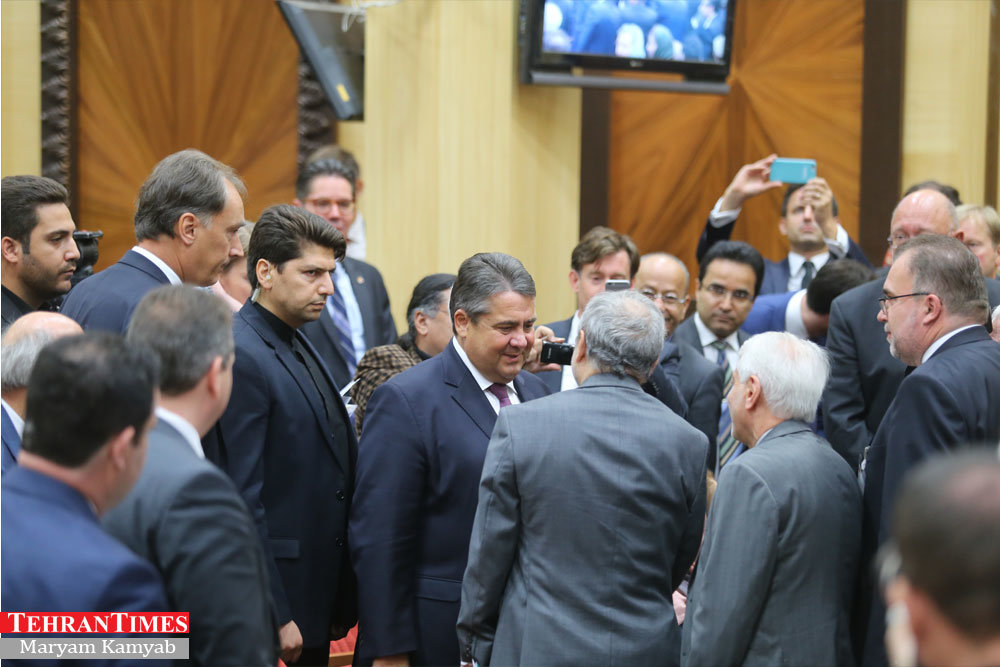criticising Gabriel's approach to JCPOA

German Foreign Minister Sigmar Gabriel has announced that his country wishes to retain the Iran nuclear agreement for which he will hold talks with the U.S. congress.
“The senior official added, “Although Iran plays a complex role in some areas in the Middle East, something that Berlin is critical of, Germany stresses direct and serious talks with Iran. We back the Iran deal up and want to keep it. In the coming weeks, we will do all it takes to convince the Congress to maintain the pact and discuss what we can do to have Iran change policy in the Middle East.”
It’s worth mentioning that some time ago, in statement that was quite questionable, Gabreil said that while Germany supports the Iran deal, it will do its utmost along with the US, United Kingdom and France to reassure Iran holds up its end of the bargain of the Joint
Comprehensive Plan of Action- JCPOA. Gabriel’s remarks came at a time that according to the International Atomic Energy Agency official reports Iran has fully adhered to its nuclear-related commitments under the pact.
Now, the fact is that concurrently speaking about retention of the JCPOA and Iran’s change in behavior, two issues that one’s legal and one’s political, is hypocrisy. Counted as a legal phenomenon, the JCPOA has very clear boundaries.
Now, one of the signatories to the deal, the US, has violated the agreement and called for a re-negotiation. Additionally, unlike the agreement made in 2015 between Iran and the P5+1, Donald Trump has called for implementation of endless time constraints on Iran for its nuclear activities and missile capability in the JCPOA.
Obviously, these ridiculous demands of the U.S president are sheer childish dreams that won’t ever turn into reality. With all that said, the main question is how the European troika including German can hold on to the Iran deal.
The answer to the question is quite clear. Germany, the UK and France are focused on Iran’s regional behavior that essentially is not in their scope of intervention, but instead they should lay emphasis on the JCPOA’s terms.
Persistency on the JCPOA execution by sending some political symbols to the United States regarding a renegotiation of the deal or its completion through the addition of the adjunct is no match with the spirit of the deal.
Clearly, today more than ever before, the Iranian nation is closely watching the behavior of European troika with respect to their country’s nuclear agreement. Time has come that European authorizes not only stand their ground on keeping the Iran deal but in formal statement, addressed to the US, clearly state the impossibility of any changes to it.
It is only then that the European troika has taken practical steps in safeguarding the Iran nuclear deal; otherwise just general conformation of the agreement and emphasis on its execution won’t be valid guarantors for its protection.
